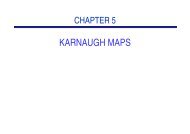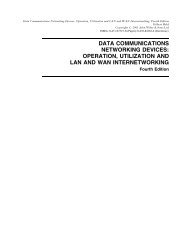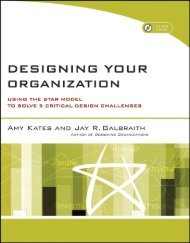The Economist December 1st 2007 - Online Public Access Catalog
The Economist December 1st 2007 - Online Public Access Catalog
The Economist December 1st 2007 - Online Public Access Catalog
- No tags were found...
Create successful ePaper yourself
Turn your PDF publications into a flip-book with our unique Google optimized e-Paper software.
Corporate governance in AmericaShareholder rights and wrongsNov 29th <strong>2007</strong> | NEW YORKFrom <strong>The</strong> <strong>Economist</strong> print editionAnother victory for bosses over shareholdersYET another attempt to make it easier for shareholders of American public companies to elect the board of directors of their choice has failed, thanksonce again to lobbying by bosses anxious to keep pesky owners at arm's length. On November 28th a vote by the Securities and ExchangeCommission (SEC) killed off the latest proposal to get companies to cover the costs of dissident shareholders who wish to propose their owncandidates for the board.<strong>The</strong>re have been many efforts over the years to improve America's system for electing corporate directors. As things stand the incumbent boardsends shareholders a ballot, or proxy, listing its preferred candidates. Any shareholder wishing to propose an alternative slate of directors must bearthe cost of distributing a rival proxy. An attempt in 2003 by William Donaldson, then SEC chairman, to allow shareholders to nominate directors onthe company proxy was shelved when bosses objected.Shareholder activists then hit upon a strategy that, it seemed, bosses could not block: voting to change company bylaws to allow contested electionson the official proxy. Surely a board cannot object to shareholders voting on company bylaws? <strong>The</strong> board of AIG, a big insurer, thought it could. <strong>The</strong>matter went to court, and the SEC was asked to decide.<strong>The</strong> SEC, now led by Christopher Cox, was split, and put two possible rules out to consultation. But then one of the SEC commissioners nominatedby the Democrats left, leaving the pro-boss Republicans able to win the vote. Mr Cox plans to return to this issue when he has a full bench ofcommissioners, but do not expect anything to happen soon.<strong>The</strong> bosses insist that they are actually lobbying to protect the interests of shareholders as a whole against minority shareholder activists, especiallyhedge funds, unions and campaigning, single-issue investors. This is nonsense. <strong>The</strong> fact is, even with proxy access, dissident shareholders wouldneed to secure the votes of a majority of shareholders to change the board. If the majority disagrees with the minority, then it can vote the otherway. That is shareholder democracy, and in most other developed countries constitutes part of what it means to be an owner of a public company.In those countries, it is extremely rare for board elections to be contested, and rarer still for dissident shareholders to succeed in getting theircandidates elected. What are American bosses so afraid of?Copyright © <strong>2007</strong> <strong>The</strong> <strong>Economist</strong> Newspaper and <strong>The</strong> <strong>Economist</strong> Group. All rights reserved.
















